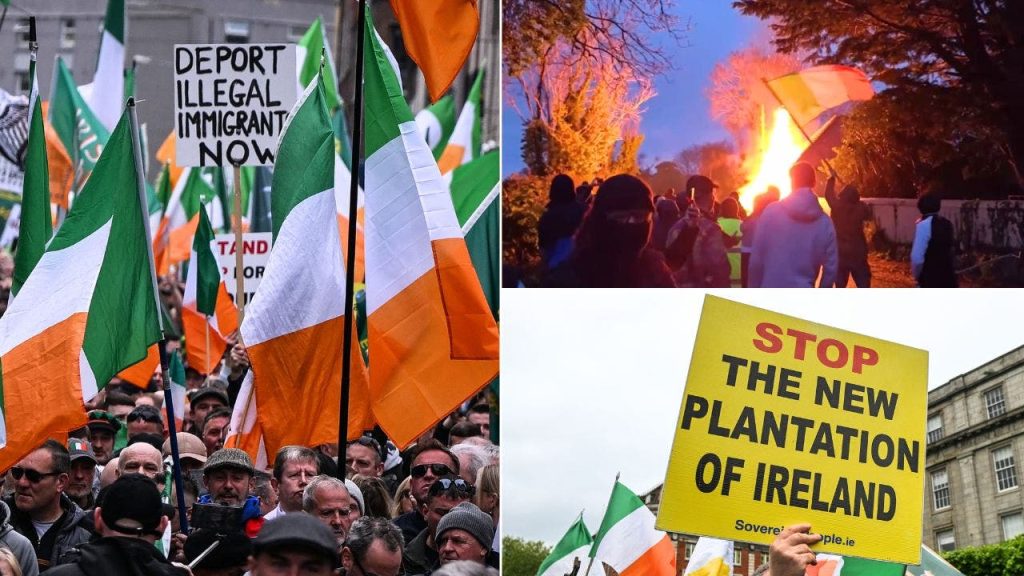The Irish government’s staunch commitment to housing and feeding an increasing number of migrants amid a severe housing crisis has sparked outrage among the Irish electorate. Similar to the migrant crisis in the U.S., protests have erupted throughout the country, with citizens demanding an end to what they see as an “open borders” agenda that prioritizes migrants over struggling Irish residents. The recent knife attacks by an Algerian-born Irish citizen have only heightened fears and tensions, leading to rioting and looting in Dublin. The protesters, representing the silent majority, argue that immigration is too high and that the country has accepted too many refugees.
Media bias has further fueled the frustration of protesters, with mainstream outlets accused of ignoring or downplaying anti-migration demonstrations. Gript, a newer media outlet, has been covering these protests that highlight growing discontent with the government’s handling of the migrant crisis. Immigration into Ireland has doubled in the last two decades, with the country now having the fourth highest non-national population in the EU. The influx of asylum seekers, particularly from Ukraine, has strained public resources and left many Irish citizens feeling neglected and marginalized.
Concerns about the legitimacy of asylum claims by migrants have been raised, with critics arguing that many are economic migrants draining taxpayer funds. A significant number of asylum seekers arriving in Ireland are single men with dubious backgrounds, leading to fears among the local population. The government’s handling of the migrant crisis, including the conversion of facilities into migrant shelters and the lack of consultation with affected communities, has exacerbated tensions. Profiteering by certain industries at the expense of locals has further fueled discontent.
Tensions between protesters and the government have escalated as the latter continues to ignore calls for stricter immigration controls and reduced migrant numbers. Demonstrators have staged protests outside the homes of government officials, accusing them of prioritizing migrants over Irish citizens. Efforts to deport rejected asylum seekers have been criticized for their low success rate, contributing to a sense of injustice among the populace. The Irish government, citing international obligations, defends its policy of accommodating asylum seekers, while critics argue that the needs of Irish citizens, particularly the homeless, are being neglected.
With existing political parties failing to address the concerns of anti-mass immigration groups, a populist, nationalist movement has emerged in Ireland. Previously center-right parties like Fine Gael and Fianna Fáil have shifted left, leaving a vacuum for more right-wing candidates to enter the political arena. The upcoming local and EU elections have seen a surge in novice candidates representing these new parties, seeking to challenge the status quo. However, the influence of refugees and asylum seekers, who are eligible to vote in local elections, adds a unique dynamic to the political landscape. The outcome of these elections remains uncertain, with mounting dissatisfaction among the Irish electorate regarding the government’s handling of the migrant crisis.


